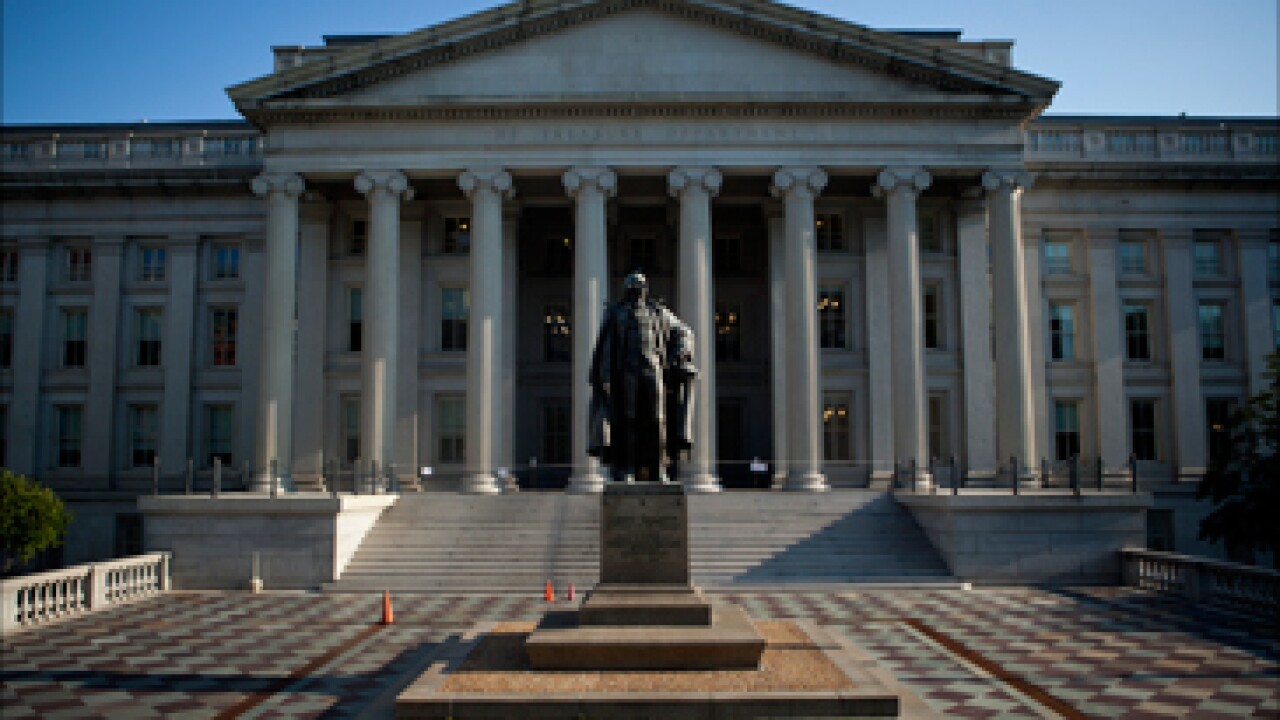WASHINGTON - The outcome of a case argued Tuesday before the Supreme Court involving the filing of securities fraud claims may determine whether and how Congress attempts to override the court's decision last week on "aiders and abettors" of fraud, according to an attorney who represents municipal bondholders.
As a result of last week's decision, federal and state regulators may eventually seek legislation to, among other things, remove the retroactive effect of the high court's April 19 decision in Central Bank of Denver v. First Interstate Bank of Denver.
That is what Congress did in response to the high court's 1991 decision in Lampf v. Gilbertson, which shortened to three years the period of time in which investors can file certain fraud suits from the date of the alleged fraud.
The case argued Tuesday, Morgan Stanley & Co. v. Pacific Mutual Life Insurance Co., involves the shorter statute of limitations that the court imposed in the Lampf case and that Congress overrode.
The case revolves around the constitutionality of the legislation that Congress passed, which preserved pending claims and reopened cases dismissed by lower courts in response to the Lampf ruling.
Attorney David Guin, of the firm Ritchie & Rediker in Birmingham, Ala., said a decision in the Morgan Stanley case could have a "tremendous effect" on what Congress does in response to the Centre Bank of Denver decision.
Attorney James W.B. Benkard, who represents Morgan Stanley, said, at the Tuesday arguments that "there may be a little deja vu here" following the Central Bank of Denver ruling.
Both the Lampf and Central Bank cases involve new limits on the ability of bondholders and other investors to file fraud claims under Section 10(b) of the Securities Exchange Act of 1934. The Central Bank ruling removed liability of aiders and abettors of securities fraud under the act.
Pacific Mutual Life Insurance Co. had filed a fraud suit against Morgan Stanley and other parties under a four-year statute of limitations in Texas, but its suit was dismissed because of the Lampf decision.
Pacific Mutual sued the investment banker in connection with the purchase of about $8 million of Interfirst Corp. securities in 1987. Pacific Mutual said Morgan Stanley and others made false and misleading statements when Interfirst subsequently merged with RepublicBank. The merged company, First Republic-Bank, fell victim to the ailing local economy and had to be bailed out by the federal government in 1988.
After the Lampf decision, "hundreds of thousands of victims of securities fraud who had previously filed legitimate claims ... were placed in jeopardy of losing their claims," which had a total value of more than $4.5 billion, the National Association of Securities and Commercial Law Attorneys told the high court in a March 25 brief.
Congress responded by removing the retroactive effect of the Lampf ruling by adding a new provision to the securities law, Section 27A(b), to reopen any dismissed cases that would have been procedurally valid under state law.
Morgan Stanley did not question the constitutionality of protecting pending claims, but it said reopening cases already dismissed violated the doctrine of separation of powers between the legislature and the judiciary. The investment banking firm said Section 27A(b) also violated due process protections for private litigants and the Fifth Amendment property right under the U.S. Constitution that prohibits legislation that divests a private party of a final court judgment.
Congress revised court judgments to dismiss claims and therefore "operated as an appellant court," Benkard said. Congress has "told you ... that [Pacific Mutual's] case should be remanded," he told the court.
Justice Anthony Kennedy, who wrote the Central Bank of Denver opinion, said the court in the Lampf decision "told Congress, in effect, its statute is broken, so Congress fixed it. It seems they can do that without interfering with the courts .... Congress can alter it without demeaning or interfering with this court, and it should do so if it desires a different result."
Michael R. Dreeben, assistant to the solicitor general, argued in favor of Section 27A(b), saying Congress did not enter a judgment or cause a new trial, but instead allowed new claims to be brought under new law. He referred to the law as a "transitional legislative rule."
But Justice Antonin Scalia questioned whether the administration's position "tends to demean the judiciary."
Justice John Paul Stevens asked whether Dreeben's reasoning would apply if Congress were to act in response to the Central Bank of Denver decision on aiding and abetting.
When Congress changes the law and determines it should be applied to cases that are "final," it does not violate separation of powers, Dreeben said. But congressional action on aiding and abetting claims, as opposed to procedural questions such as statutes of limitations, could raise more difficult questions regarding due process and taking of property, he said.
Attorney Richard G. Taranto, arguing for Pacific Mutual, said Congress did not violate due process or separation of powers because it did not decide the merits of individual cases.
Scalia asked whether, under Taranto's reasoning, Congress could require that cases already decided be reopened to provide for a specific type of defense without violating separation of powers and due process rights. When Taranto responded yes, Scalia said dryly, "it's nice to know."
Taranto conceded that there is no previous Supreme Court case that sets a direct precedent for his case, but he maintained Congress can reopen a class of cases by changing laws without exercising judiciary power.





